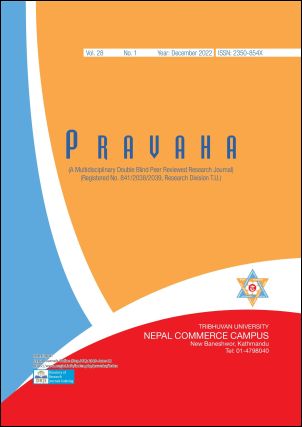Role of Demographic Factors on Emotional Intelligence of Tribhuvan University’s Faculty Members
DOI:
https://doi.org/10.3126/pravaha.v28i1.57976Keywords:
Demographic factors, Emotional intelligence, Tribhuvan University, Faculty MembersAbstract
The main objective of this study is to examine the role of demographic factors (age, marital status, education, service year, designation, and income)in the level of emotional intelligence of faculty members. The population of the study is faculty members of the central campus of Tribhuvan Univesity and its constituent campuses situated in Kathmandu, Bhaktapur, and Lalitpur districts. The structured questionnaire was distributed to the one hundred and six faculty members to get information regarding the influence of demographic factors on emotional intelligence. The questions related to emotional intelligence were based on the Goleman model (1998). The analytical research design was used by applying statistical tests like frequency, percentage, and one-way ANOVA for analyzing the data. The result revealed that demographic factors like age, education, service year, designation, and income influence emotional intelligence while marital status and gender do not. Some limitations and scope for future research have been discussed.
Downloads
Downloads
Published
How to Cite
Issue
Section
License
© Nepal Commerce Campus, TU
Authors are required to transfer their copyright to the Nepal Commerce Campus, TU.




